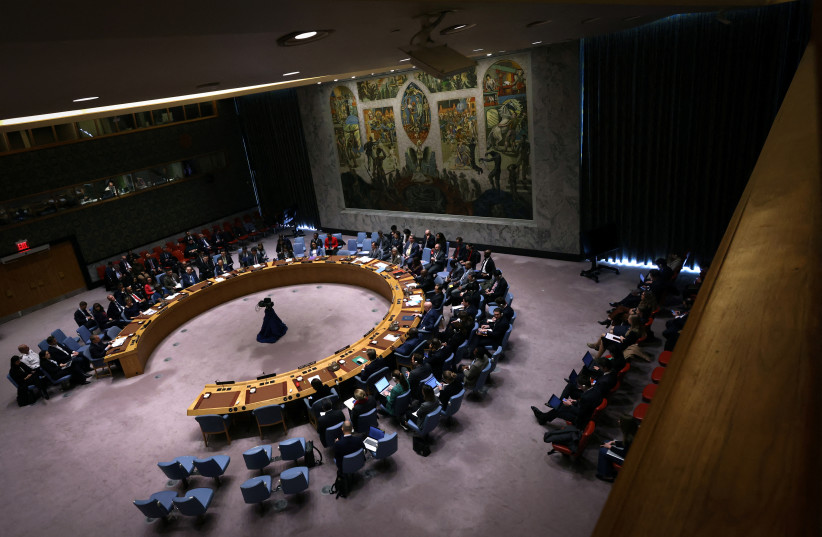French President Emmanuel Macron spoke with Prime Minister Benjamin Netanyahu on Sunday. After expressing solidarity with Israel in the wake of the October 7 attacks, and reiterating France's call for the release of the hostages held by Hamas, Macron repeated his call for an immediate ceasefire in Gaza and expressed his concern regarding Israel's actions in Shifa Hospital.
Macron reiterated his opposition to military action in Rafah. He noted that any forced transfer of the Gazan population would constitute a war crime according to international law and that the future of Gaza is within the framework of a Palestinian state under the responsibility of the Palestinian Authority.
The two leaders discussed the humanitarian situation in Gaza and the urgency of ramping up humanitarian aid, in light of a risk of famine and the deprivation of basic needs among the civilian population of the Strip.
Macron insisted that Israel immediately and unconditionally open all crossing points to the Gaza Strip, especially the Karni crossing, with a direct land route from Jordan and the port of Ashdod. The number of trucks should be determined in a transparent manner, he said, in coordination with the United Nations.
Macron also called to prevent violent skirmishes during Ramadan in Jerusalem and the West Bank, and also highlighted the call to maintain the status quo of holy places in Jerusalem.
Macron strongly condemned Israel’s latest announcements on settlement development, citing them as going against international law. He mentioned that France and Europe have taken initial steps against settlers guilty of acts of violence against Palestinians, and that France is planning further steps in coordination with its partners.
Macron calls for ceasefire
The French president informed Netanyahu of France's intention to submit a resolution to the UN Security Council calling for an immediate and lasting ceasefire that would lay the foundations for a permanent solution to the conflict.
Macron believes that the two-state solution remains the only solution that will meet Israel's security needs and the legitimate aspirations of the Palestinians, he said, and that it will require courageous and voluntary mobilization of Israeli and Palestinian political leaders for peace.

Regarding Israel’s northern border, Macron emphasized the necessity to move towards a diplomatic solution and prevent any escalation between Israel and Lebanon through the full implementation of Security Council Resolution 1701. Macron stated that France would continue to convey messages of restraint to regional actors, including Iran, in order to prevent a regional flare-up.
French president also converses with King of Jordan
Along with his conversation with Netanyahu, Macron also held a phone conversation with King Abdullah of Jordan, in which the two discussed the humanitarian situation in Gaza and what they agreed was a necessity for an immediate and sustained ceasefire to enable the arrival of aid and protection for the civilian population.
Macron said that the release of all the hostages remains the absolute priority for France.
The two leaders asserted their decisive opposition to an Israeli campaign in Rafah and their concern about Israel's actions at Shifa Hospital. Gaza remains Palestinian territory, they said, and the forced transfer of the population would constitute a war crime under international law.
There is no justification for exposing the population to the risk of famine, and it is essential to allow humanitarian access at all crossings, especially Karni, Macron stated, also mentioning the importance of maintaining the status quo on holy places in Jerusalem, including the Temple Mount, which is primarily administered by the Jordanian Waqf.
Macron and Abdullah said they would persist in their joint efforts in support of a two-state solution, including the establishment of a Palestinian state that would include Gaza. Macron announced that France, in coordination with members of the Security Council and the Arab Contact Group, is preparing a proposal for a resolution that will call for a ceasefire and, he said, lay the foundations for a sustainable political solution to the conflict.
